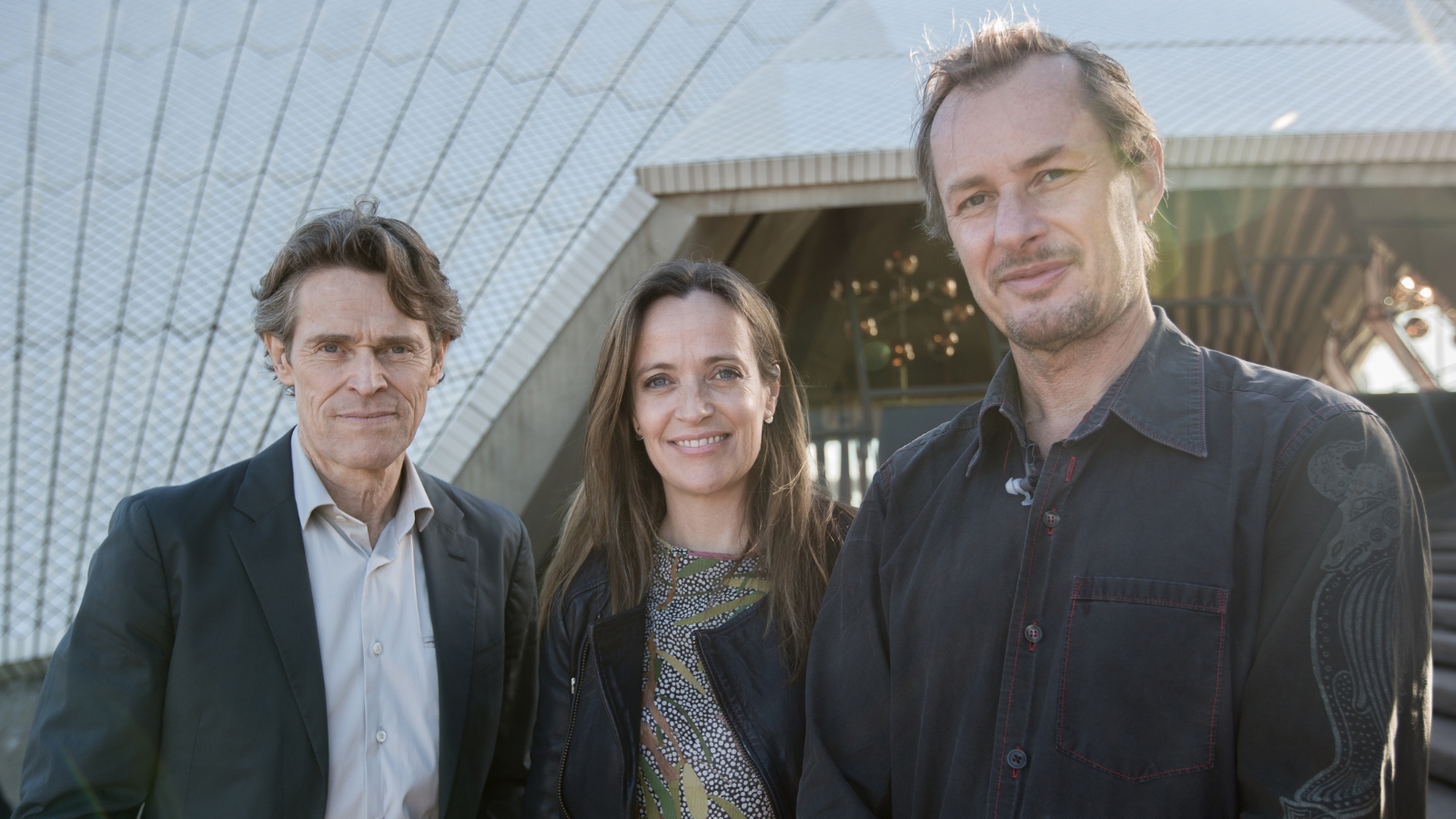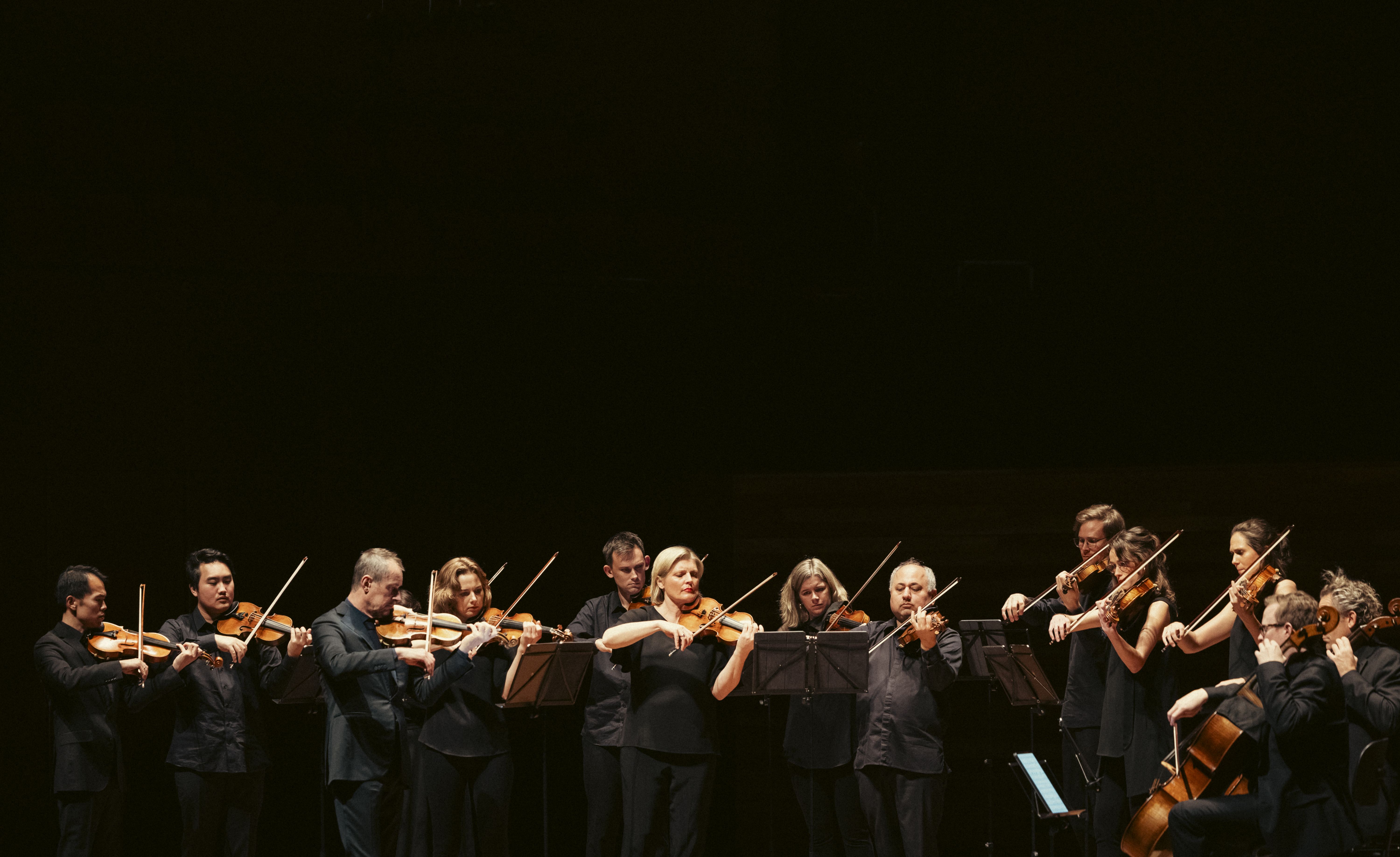
“I have this attitude that sometimes you hear better by seeing, and sometimes you see better by hearing,” says Australian Chamber Orchestra artistic director and lead violin Richard Tognetti. “That’s synaesthesia, and it’s not like it denudes the musical process at all, although some purists would argue that it does.”
It may come as a surprise to hear this statement from someone whose life has been so thoroughly immersed in music since he first picked up a violin, aged four.
But to see Mountain is to understand implicitly where Tognetti is coming from. The astonishing, awe-inspiring, fear-inciting and consistently majestic cinematography is only enhanced by the soundscape that moves and inspires you one moment, only to bring you to tears the next; the visuals leading you to hear the music in a way you never have before.
Here Mountain is quite unusual: a collaborative film with no conventional characters or story that gives the music and cinematography equal billing.
“It’s a fairly new form of expression, having the orchestra play live as part of a film,” explains Tognetti. “Plenty of orchestras play the scores of movies with the film projected behind them, but having the orchestra play the soundtrack to the film that they have actually been involved in creating is quite different.”
"The pair met in 2013 to discuss Tognetti’s evolving idea for a documentary that explored the intoxicating allure of mountains."
His interest was piqued, however, after ACO cellist Julian Thompson suggested he watch some footage from his old friend, BAFTA award-nominated filmmaker and experienced mountaineer, Jennifer Peedom.
Tognetti did just that, beginning with Peedom’s gripping documentary Solo about Australian adventurer Andrew McAauley’s – ultimately doomed – attempt to kayak solo from Australia to New Zealand. The pair met in 2013 to discuss Tognetti’s evolving idea for a documentary that explored the intoxicating allure of mountains, humans’ interactions with them and our obsession and often futile attempts to conquer them, accompanied by a live soundscape that would enhance the footage and prompt audiences to view mountains in a new light.
Peedom was intrigued, particularly as someone who understood well the irresistible pull of mountaineering.
“When I’m in the mountains I feel different, I feel alive,” she says. “Part of what Mountain is about and the reason I wanted to make it is I have had some insight into that world, and I can see part of what is so alluring to those climbers, and also what’s so addictive.”
“When I’m in the mountains I feel different, I feel alive."
“Mountains changed my life and pretty much shaped everything I did toward them. They brought me onto this strange career path and lifestyle where I spend part of my year making films about them and the other part of my year pushing my limits in the mountains,” Ozturk says. “Working with Richard and the Australian Chamber Orchestra is the most unique part of this collaboration, the fact it has a live score transforms the way we see a lot of this footage.”
The final piece of the puzzle was a loose narration, penned by best-selling Mountains of the Mind’s British author Robert Macfarlane and voiced by Hollywood actor Willem Dafoe.
The result was more than 2000 hours of footage shot in 15 countries edited into a 70-minute feature documentary that explores humankind’s history with mountain worship, the beginnings of mountaineering and the boundary-pushing, often fatal attraction adrenaline junkies have to mountains today, from free climbing (no ropes) to wing suiting, heli-skiing and para-biking.
Inseparable from it all is the score. And here the creative process proved both unique and challenging, for both Tognetti and Peedom. Not only did they have different reactions to certain vertiginous footage – where Peedom saw beauty Tognetti saw horror, meaning musical concepts differed – but Mountain was a true collaboration.
Rather than the customary practice of choosing music to accompany the film, it was often beholden on Peedom to craft images around the music.
“Collaborating with a musician was a totally different way of making the film. It meant I had to approach it in an entirely different way, the collaboration was the point, so I said ‘OK, what are the rules of engagement?’” says Peedom who is used to calling the shots but here was alerted to certain composers whose music she couldn’t cut, while other musical passages were to be kept free of narration. Similarly, if Tognetti’s musical choice failed to resonate with Peedom, it would go.
"Not only did they have different reactions to certain vertiginous footage – where Peedom saw beauty Tognetti saw horror, meaning musical concepts differed – but Mountain was a true collaboration."
“Shaping the score to Mountain took a long time,” said Tognetti, who would source, or compose music that would express what the scene was seeking to achieve. “It is incredibly hard to use pre-existing music and make it fit a unique film. So with the music by Beethoven, Chopin, Grieg, Sculthorpe, etc., I would give Jen the music to craft the film around what she wanted. It’s a very different process to the original compositions where the music is crafted around the imagery.
“With the original music that is included in Mountain, that was a real collaboration with Jen. She would tell me what she was trying to express, and what the scene in the movie meant, and then I would try and come up with the musical equivalent. And the result is that some of the compositions are filmic and some of them are more like dreamscapes.”
Mountain premiered at the Sydney Opera House in 2017 and was an immediate success, enjoying a sell-out national tour, with the film going on to become the highest-grossing Australian documentary in box office history. It has since had a cinema release in more than 26 countries, while the ACO has toured the live performance internationally including a sold-out performance at London’s Barbican Centre.
Today, both Peedom and Tognetti continue to be buoyed by the fact their film still reaches new audiences, across all artforms.
“One of the things I’m proud of with this project is it’s really reached, from the orchestra-going audiences to normal cinema-going audiences,” says Peedom. “It’s totally different audiences seeing the same film in slightly different ways.”
Click here to discover and book Mountain, touring to Brisbane, Sydney, Canberra and Melbourne from 27-30 October.
Written by Jane Albert
